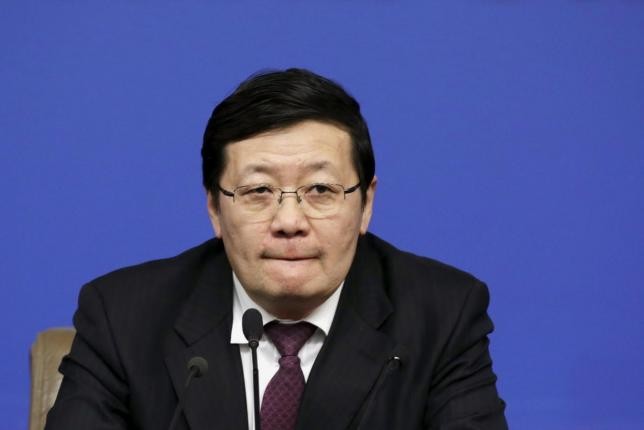Chinese Finance Minister Lou Jiwei has complained against international credit-rating companies for their "bias" against the country following the lowered outlooks on China from Standard & Poor's Rating Services and Moody's Investors Service, according to a report by Bloomberg.
"Historically, the market performance of most of China's sovereign debt was higher than the assessment of the credit-rating agencies," Lou Jiwei said during a press briefing in Washington after a Group of 20 meeting on Friday, April 16. "That means there's bias."
According to Lou, China's "economic reality" was not reflected in the March downgrades and the first quarter's 6.7-percent growth rate was still very high.
Lou said that last year's slower pace was expected since it is in line with China's target range of 6.5 percent to 7 percent. He added that measures to control the increase and size of local government debt have been taken by China, which was a concern cited by Moody's and Standard & Poor's.
Last month, the ministry told the credit-rating agencies that they underestimated China's ability to handle economic risks and the recent comments by Lou were the strongest word against the agencies.
The outlook for China's AA- long-term credit rating was downgraded by Standard and Poor's from stable to negative in March, after Moody's made a similar move earlier in the month.
Lou said in March that the move had little market impact and Chinese leaders "didn't care that much" about Moody's cut, while the country's economic officials tried to assuage investors' concern over China's outlook, saying that there is more room to act with monetary and fiscal support.
The minister said on Friday, April 15, that the increasingly aging population is posing a challenge to China's economy as it takes on strong measures and reforms to tackle the "downward pressure."
"I'm afraid the credit-rating agencies are not familiar with these reforms, so I don't blame them," Lou said, citing a government plan for a debt-to-equity swap program which it has not released yet.
Data showed on Friday that the surge in new credit has helped the property sector to rebound, stabilizing China's economy in the last quarter, which gathered pace in March, amid questions of sustainability of the expansion driven by debt.
International Monetary Fund (IMF) First Deputy Managing Director David Lipton said on Bloomberg Television on Friday that China's transformation to a consumer-led economy may be a "rocky" experience as the forecast of China's growth this year was upgraded by IMF by 0.2 percentage points. He also expressed concern over the quality of China's growth.
"The IMF only sees the measures we recently adopted on the demand side, but we have different views on the supply-side reforms," Lou said. "I don't want to comment on their forecast. They have their own logic."




























